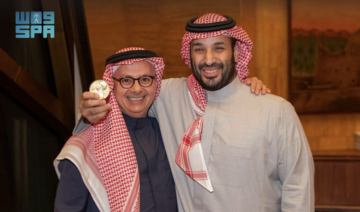ANKARA: Turkey never used chemical weapons in its operations in Syria, and takes the utmost care of civilians, a Turkish diplomatic source said, after Syrian Kurdish forces and a monitoring group accused it of carrying out a gas attack in Syria’s Afrin region.
“These are baseless accusations. Turkey never used chemical weapons. We take utmost care about civilians in Operation Olive Branch,” the source said.
Syrian Kurdish forces and a monitoring group said the Turkish military carried out a suspected gas attack that wounded six people in Syria’s Afrin region on Friday.
The source also described the accusations of wounding six civilians through a suspected gas attack as “black propaganda.”
Turkey launched an air and ground offensive last month on the Afrin region, opening a new front in the multi-sided Syrian war, to target Kurdish fighters in northern Syria.
Birusk Hasaka, a spokesman for the Kurdish YPG (people’s protection units) militia in Afrin, told Reuters that Turkish bombardment hit a village in the northwest of the region, near the Turkish border. He said it caused six people to suffer breathing problems and other symptoms indicative of a gas attack.
The Syrian Observatory for Human Rights told Reuters that Turkish forces and their Syrian insurgent allies hit the village on Friday with shells. The Britain-based war monitoring group said medical sources in Afrin reported that six people in the attack suffered breathing difficulties and dilated pupils, indicating a suspected gas attack.
The Syrian regime’s media, citing a doctor in a Afrin hospital, said Turkish shelling of the village caused choking in six people.
The claims could not be independently confirmed, and videos released from the hospital showed people being fitted with oxygen masks who did not otherwise show symptoms of gas attack inhalation such as twitching, foaming at the mouth or vomiting.
The Turkish military repeated in a weekly statement published Saturday that it does not use internationally “banned ammunition” in its Afrin operation and said, “the Turkish Armed Forces does not keep such ammunition in its inventory.”
The army also said it is careful to not harm civilians and only targets “terrorists” and their positions in the Afrin region.
On Feb. 6, the UN called for an immediate humanitarian cease-fire in Syria.
Since the onset of the conflict in 2011, the YPG and its allies have set up three autonomous cantons in the north, including Afrin. Their sphere of influence expanded as they seized territory from Daesh with US help, though Washington opposes their autonomy plans as does the Syrian regime.
US support for Kurdish-led forces in Syria has infuriated Ankara, which views them as a security threat along its frontier. Turkey sees the YPG as terrorists and an extension of the outlawed Kurdistan Workers Party (PKK) that has waged a three-decade insurgency on Turkish soil.
Turkey denies use of chemicals in Afrin, says accusations baseless
Turkey denies use of chemicals in Afrin, says accusations baseless

Saudi scientific organization celebrates 2025 Nobel Prize in Chemistry laureate Omar Yaghi

- King Abdulaziz City for Science and Technology honors him with a reception at its headquarters in Riyadh
- Yaghi, the first Saudi recipient of a Nobel Prize, shared the Nobel Prize with 2 other scientists for their pioneering work in molecular chemistry
LONDON: King Abdulaziz City for Science and Technology in Riyadh honored Omar Yaghi, the Saudi scientist and recipient of the 2025 Nobel Prize in Chemistry, with a reception at its headquarters in Riyadh on Thursday.
Yaghi is the first Saudi scientist awarded a Nobel Prize. He received it in December, alongside two other scientists, for their pioneering work in the field of molecular chemistry, and for contributions to energy, the environment and advanced materials.
He is also supervisor of the Center of Excellence for Nanomaterials for Clean Energy Applications, a collaboration between KACST and the University of California, Berkeley.
Munir Eldesouki, the president of KACST, said that the Kingdom is keen to recognize its scientific talents, in keeping with Saudi Vision 2030 and its goals relating to the fostering of scientific research.

Yaghi said he appreciated the support he had received from Saudi leaders during his career, and praised them for creating an enabling environment in which scientists are able to pursue world-class research, development and innovation.
Investment in national talent has created a research ecosystem that positions Saudi Arabia among the leading scientific nations, he added.
Thursday’s event, attended by the organization’s staff and students, also honored the winning teams from the recent “GenAI for Materials Discovery Hackathon,” which KACST organized in partnership with the University of California, Berkeley, and Academy 32, a nonprofit Saudi organization dedicated to research, development and innovation.
The celebration concluded with an interactive discussion session during which Yaghi talked with students and researchers, reflected on key milestones in his scientific journey, and shared insights into the factors that helped shape his career, the Saudi Press Agency reported.













